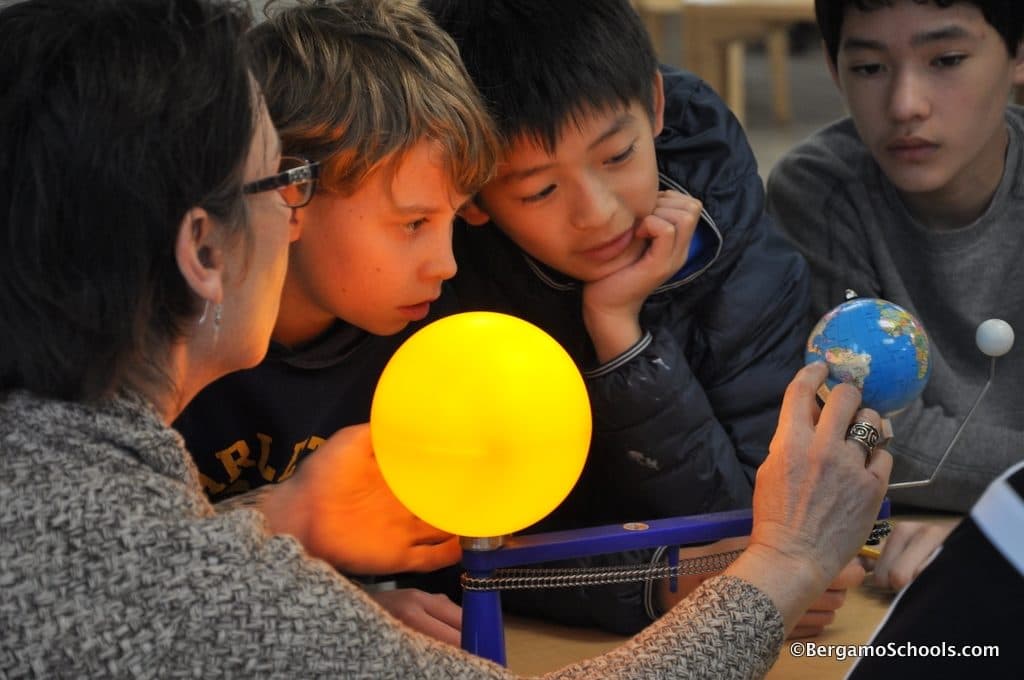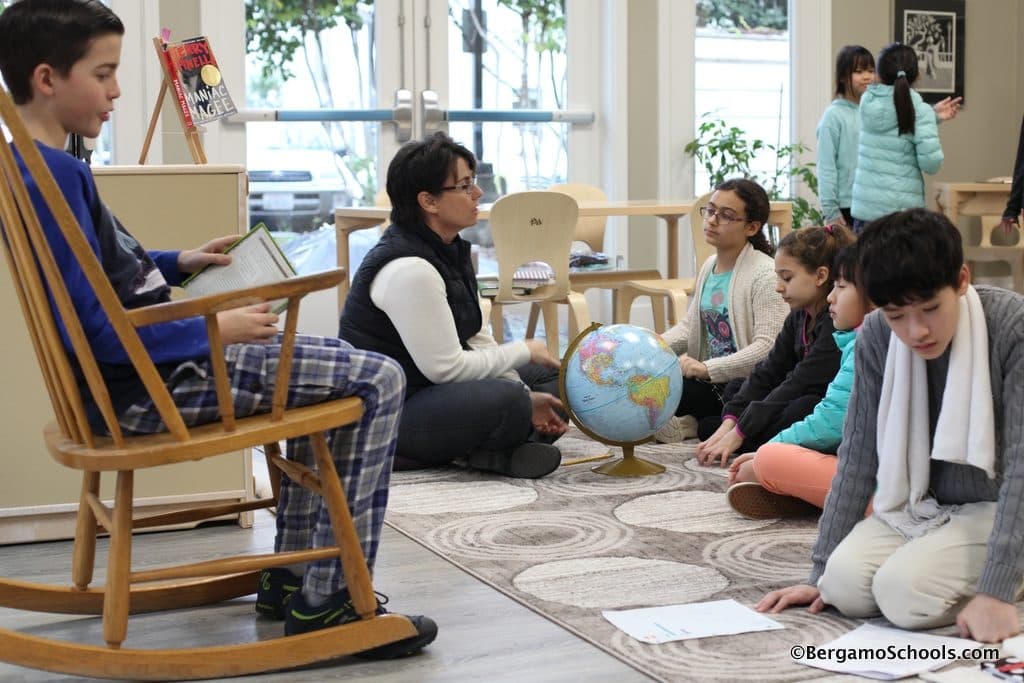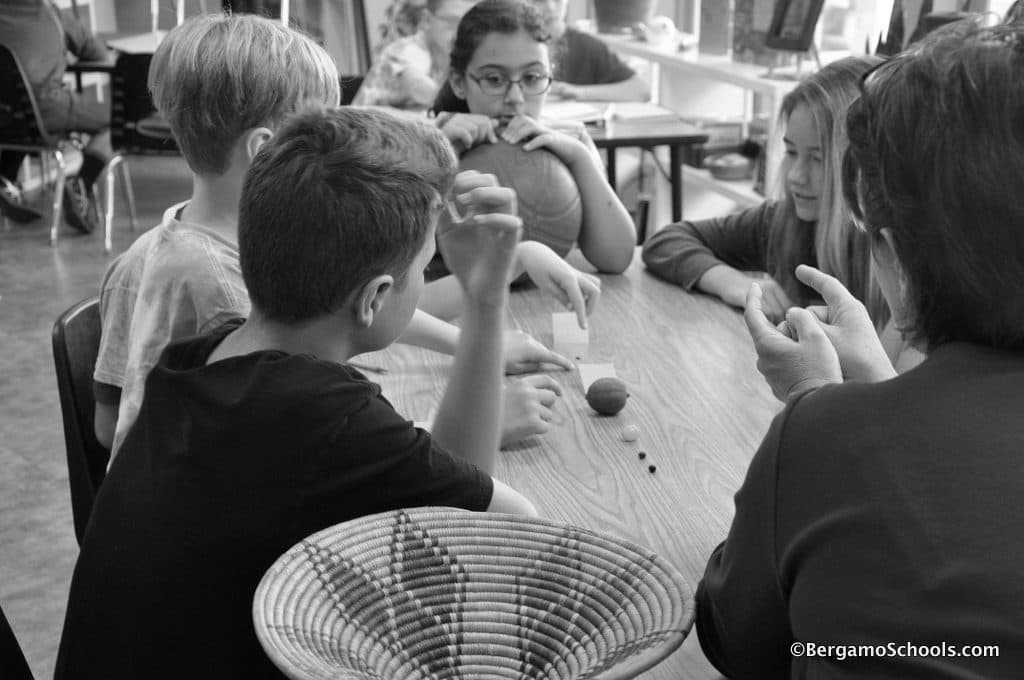Our Upper Elementary Guide at Bergamo Montessori, Wendy Tye, will be speaking in front of the AMI Annual General Meeting in Amsterdam in April. She took a moment from her preparations to answer a few questions about the organization and her Montessori work at the international level.
What is AMI EAA?
AMI-EAA is Association Montessori Internationale-Elementary Alumni Association. We are an affiliate of AMI and solely represent elementary guides. We produce newsletters for this community three times a year with a focus on providing information and tips for guides in both private and public Montessori schools.
How long have you been involved? What is your role?
I attended my first AMI-EAA summer conference about 8 years ago in Ashland, North Carolina. I found my tribe in other Montessori elementary guides. We talked about solving the real problems: how to deal with pencils in the classroom (you have no idea!), how to implement Dr. Montessori’s cosmic education model, and how to stay true to Montessori ideals, especially those that create an authentic Montessori experience.
I was asked to be on the AMI-EAA board as the treasurer, a job which was not a good fit for me. However, I had a lot of contributions to make to the elementary community and to the AMI-EAA board, so they allowed me to create a new board position, Outreach Coordinator. My role has been to reach out to both the domestic and the international community in the form of training center support for new graduates, organizing registration for our conferences, and improving communication between AMI Global and its affiliates in the US. Through my board position, I have also been asked to work on finding ways to consolidate the four US Affiliates into a cohesive group with better outreach, communication, and effectiveness for the US Montessori community.
How have you benefited as a teacher from EAA?
As a guide, I consider AMI-EAA to be a lifeline. It can be isolating to be one of a few teachers in an area doing work that others think is avant-garde, or weird, or simply different. AMI-EAA allows me to be connected to likeminded individuals who are struggling with the same pressures I am. But more importantly, it serves as a place to celebrate the amazing things going on in our classrooms. It serves as a source of hope for me about all the great things going on in the world.
What is the focus of your talk in Amsterdam?
As a representative of AMI-EAA and a well-known elementary guide in the US, I have been asked to speak to the global affiliated societies (AMI-China, AMI-Belarus, AMI-Canada, AMI-Germany, AMI-Egypt…) about the elementary community. So many countries around the world are embracing Montessori education as we see the positive outcomes of children who are allowed to be independent, to make mistakes, and who are nurtured to be the best selves they can be. The scientific evidence is also building that supports the work we have been doing for 100+ years. There is tremendous growth happening in primary communities. Soon, parents will be chomping at the bit about Montessori elementary, and my work and experience is being sought as a resource for those countries and communities. So, I will be traveling to Amsterdam next month to speak to these societies.
How long have you been a Montessori teacher?
I have been a Montessori guide for 12 years but have worked in our Bergamo/Woodland schools for more than 20 in a variety of capacities. I have been so incredibly supported by our school to do what it is that I was trained to do. This is a pretty unique situation – so many schools try to alter Dr. Montessori’s work. Matt and Pam have both worked very hard to create schools where the guides are able to work in the best interest of children, regardless of fluctuating educational trends. I am incredibly grateful for this, as my experience within this school allows me to speak with authority in the larger Montessori community and to the global affiliated societies of AMI! This authentic Montessori environment and my role within AMI-EAA supports the single most important aspect of my work: meeting children’s developmental needs day in and day out, loving them, and meeting them where they are academically, emotionally, physically, and socially.


